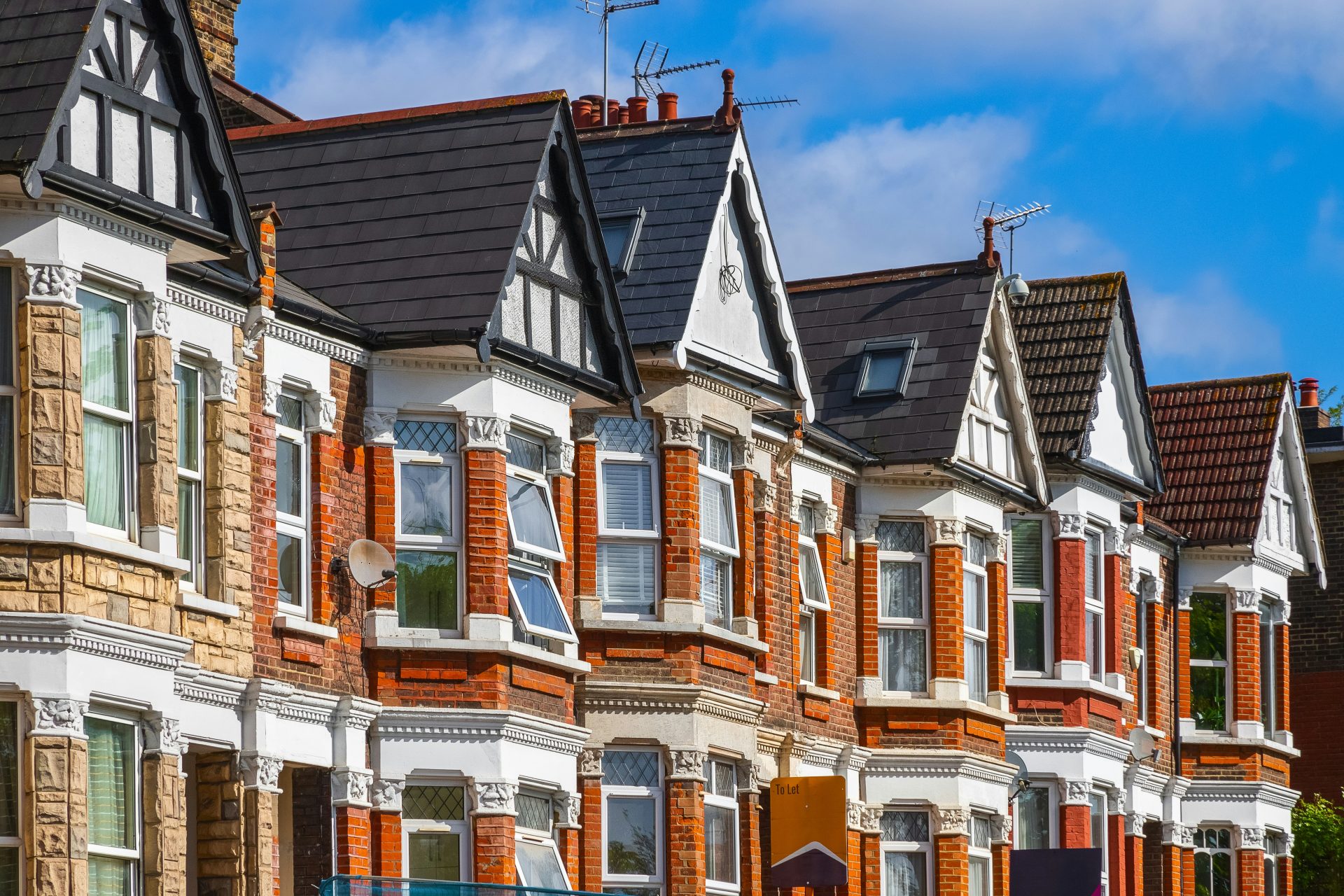
The Blueprint for Purchasing Real Estate in the UK as an International Buyer
Are you considering relocating to the UK or investing in British real estate from abroad? This guide walks you through the essential information needed to purchase property in the UK as a non-resident.
You’ll learn about each stage of the property buying process, including how to search for homes or apartments, applying for a mortgage, and understanding fees and taxes. We’ll also address the impact of Brexit, outline UK property price trends, and introduce a secure, cost-effective way to send money internationally.
How is the UK property market performing?
UK property prices rose significantly in recent years due to high demand and limited housing supply. However, the trend has begun to reverse. Rising living costs have contributed to a dip in property values, with the average UK home price falling by 2.1% in 2023, now averaging around £285,000.
Despite this, the market remains competitive, although conditions are showing signs of stabilisation.
Are international buyers allowed to purchase UK property?
Yes. There are no legal restrictions that prevent foreign nationals from buying property in the UK. You do not require a visa if you’re investing rather than relocating.
However, foreign buyers may undergo additional identity verification checks, so be prepared to provide proper identification and proof of address.
What has changed post-Brexit?
Post-Brexit, the process of buying property in the UK remains largely the same for foreign buyers. Whether you’re from the EU or outside of it, you can still purchase property in the UK under the same general rules as citizens.
Does owning property in the UK grant residency?
No, purchasing property in the UK does not provide an automatic path to permanent residency. If you wish to reside in the UK, you’ll need to apply for the appropriate visa, such as the Skilled Worker visa. After five years of residency, you may then apply for permanent settlement or citizenship, subject to eligibility.
What are average UK property prices?
As of January 2025, the typical home in the UK cost approximately £290,000. However, property prices vary by region and housing type.
Average property prices by type:
- Detached homes: £458,066
- Flats/apartments: £227,951
Regional average house prices:
| UK Region | Avg. Price (£) |
| London | 533,986 |
| South East | 398,368 |
| South West | 329,691 |
| West Midlands | 256,694 |
| East Midlands | 251,177 |
| North West | 214,431 |
| North East | 163,371 |
| Yorkshire & the Humber | 207,635 |
| East of England | 358,114 |
| Wales | 216,871 |
| Scotland | 185,016 |
| Northern Ireland | 175,234 |
Where can you find the most affordable homes in the UK?
The North East of England offers the most budget-friendly real estate, with average home prices around £163,371. Other lower-cost regions include Wales, the North West, and Yorkshire.
Conversely, London and Southern England are the priciest areas to buy property.
Where to search for UK properties
Real estate agencies
If you’re based abroad, you may wish to connect with estate agents in the UK who specialise in helping overseas buyers. Agents can provide tailored options, though some may charge for their services.
Online property platforms
You can also browse properties online through:
- Rightmove
- Zoopla
- Prime Location
- OnTheMarket
- Gumtree
These sites let you filter listings by location, property type, size, amenities, and more. Many offer direct contact with agents or sellers.
Common challenges when buying property in the UK
Foreign buyers should be cautious of scams and always verify the legitimacy of agents and sellers. Consider commissioning a professional property inspection to uncover any hidden issues, which might otherwise later turn out costly.
If you will be traveling in person to inspect the property, its best to appear nondescript without having to compromise on the most practical travel items and kits. This is because it’s highly advisable to travel in person at least once during the buying process—ideally during the viewing or survey stage. While some virtual tours and online listings offer a good starting point, they can’t replace seeing the neighborhood, inspecting the property’s condition firsthand, or meeting key contacts like your solicitor or estate agent. An in-person visit (best done modestly) also helps you spot red flags that might not be obvious in photos and can give you more confidence in your purchase decision. If travel isn’t possible, then consider hiring a trusted local representative or independent surveyor to act on your behalf and provide detailed, unbiased feedback.
Also, be aware of potential issues like property chains (wherein chain valuation affects each unit) and the risk of gazumping, where another buyer places a higher offer after yours is accepted. The criteria for handling this is pretty much psychological.
Tips for choosing the right home
To ensure you’re making a wise investment:
- Conduct at least one in-person property viewing
- Commission a qualified surveyor to assess the building’s condition
- Review the Energy Performance Certificate (EPC)
- Confirm whether the property is freehold or leasehold
- Ensure the property can legally be sold
Assessing the property’s condition
A home survey helps identify any maintenance issues or structural damage. Surveys are offered at different levels:
| RICS Survey Level | Detail | Best For |
| Level 1 | Basic overview of condition | Newer properties in good shape |
| Level 2 | Moderate detail with valuation | Standard properties in fair order |
| Level 3 | In-depth structural inspection | Older or unique buildings |
A step-by-step guide to buying UK property as a non-resident
You can take the following simplified steps to get you through. Should something turn out more complicated along the line, it might be a cue to innovate a worthy solution. Just make sure that, for that as well, you follow the teaching of veteran business advisers…
- Determine your budget and target area
- Organise finances and secure a mortgage in principle
- Begin house hunting online or via estate agents
- Attend property viewings
- Make and negotiate your offer
- Finalise mortgage application
- Hire a solicitor for conveyancing
- Commission a property survey if needed
- Exchange contracts and pay deposit (typically 10%)
- Complete legal processes and pay the remaining balance
- Register ownership with the Land Registry
- Receive keys and move in/rent out
Getting a UK mortgage as a foreign buyer
International buyers can obtain a UK mortgage, but may face certain restrictions if they haven’t lived in the UK for at least two years. You might need to provide a larger deposit or accept higher interest rates.
Consult with UK banks early in the process. You may also engage a mortgage broker to help identify suitable lenders, though this may involve an extra fee.
Taxes and fees you should expect
As an overseas buyer, you’ll need to budget for several additional costs:
| Fee/Tax Type | Estimated Cost | Purpose |
| Conveyancing | £1,100 – £1,800 | Legal processing of property purchase |
| Stamp Duty | Varies (based on price) | Government tax on property transactions |
| Land Registry Fee | £20 – £1,000 | Registering ownership |
| Survey Fees | £250 – £1,500 | Property condition assessments |
| Foreign Buyer Tax | Additional 2% | Surcharge on non-resident property buyers |
Understanding these costs helps you create a realistic budget and avoid unpleasant surprises.
With proper research and preparation, buying property in the UK as a foreigner can be a secure and rewarding investment. Make sure to consult qualified professionals and always use trusted financial services to manage your international transactions.



 Bitcoin
Bitcoin  Ethereum
Ethereum  Tether
Tether  USDC
USDC  XRP
XRP  Solana
Solana  TRON
TRON  Lido Staked Ether
Lido Staked Ether  Cardano
Cardano  Avalanche
Avalanche  Toncoin
Toncoin